ALS Focus Results from the Understanding Insurance Needs and Financial Burdens Survey
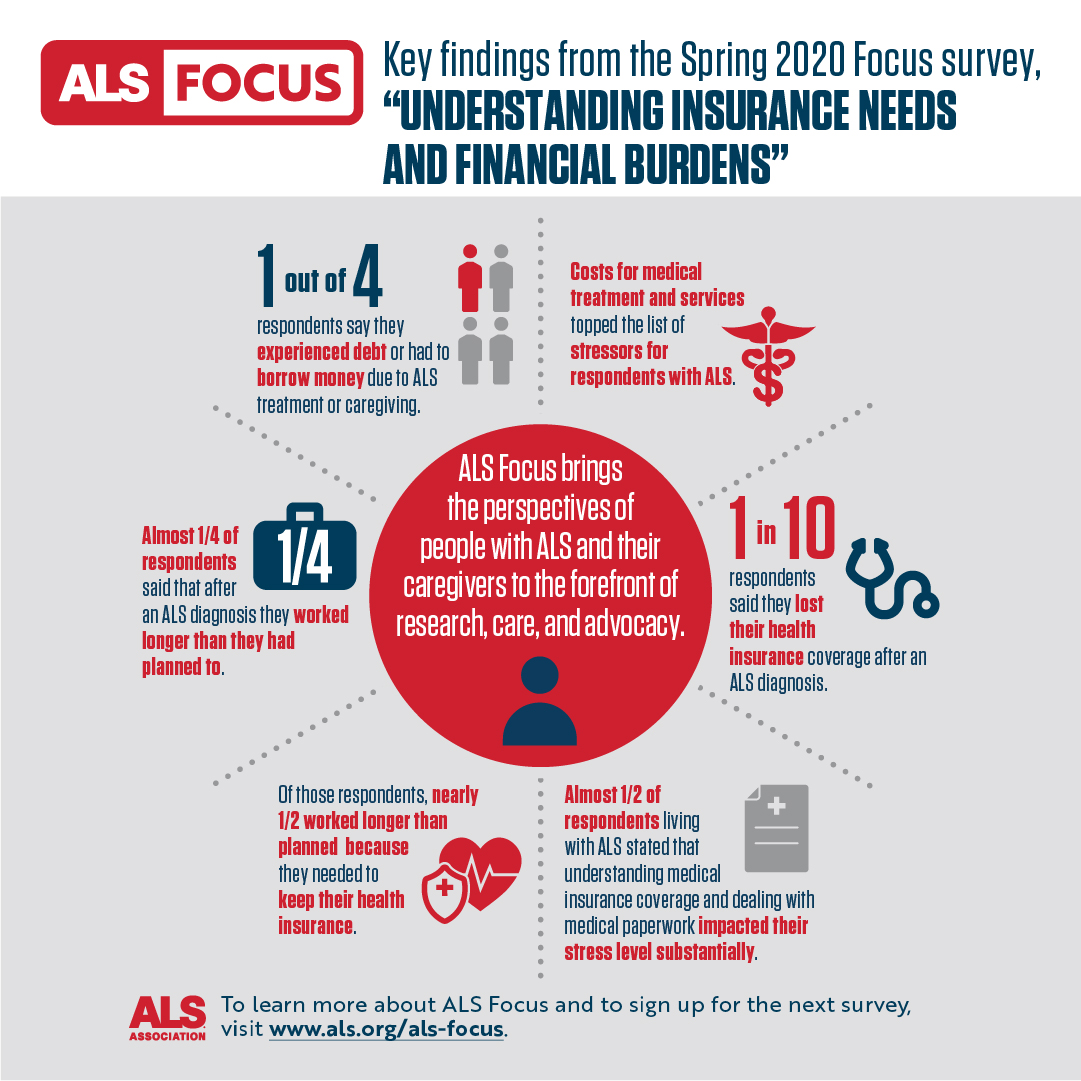
The final sample for the ALS Focus survey on Understanding Insurance Needs and Financial Burdens included 204 people living with ALS, 116 current caregivers, and 120 past caregivers (440 participants total). This survey is based on a convenience sample, meaning people opted in to participate. To be eligible, individuals had to be at least 18 years old, live in the United States, and consent to participate. Data was collected from February 13, 2020 to April 3, 2020.
Debt from ALS
One out of four people with ALS and caregivers (25%) said they had to borrow money or go into debt because of their ALS treatment or needing to provide caregiving, respectively.
Borrowing Money or Experiencing Debt Due to ALS Treatment or Caregiving
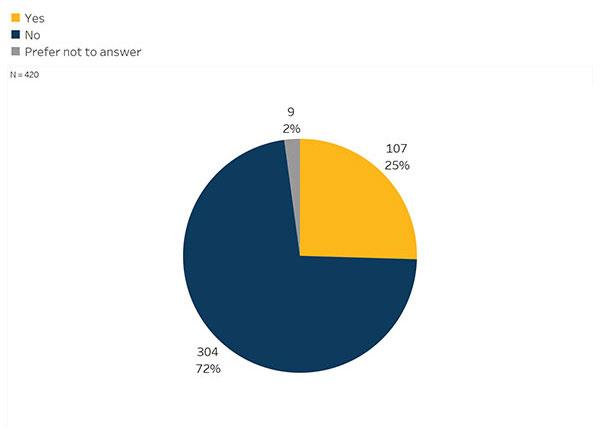
Work Burden from ALS
One quarter of people with ALS and caregivers (25%) said they continued working beyond when they had originally planned after their ALS diagnosis or the diagnosis of the person they care(d) for. Nearly half (42%) of those who continued to work said they did so to maintain health insurance, either for themselves as they live with ALS or the person with ALS they care(d) for.
Continuing to Work and Maintaining Health Insurance After an ALS Diagnosis
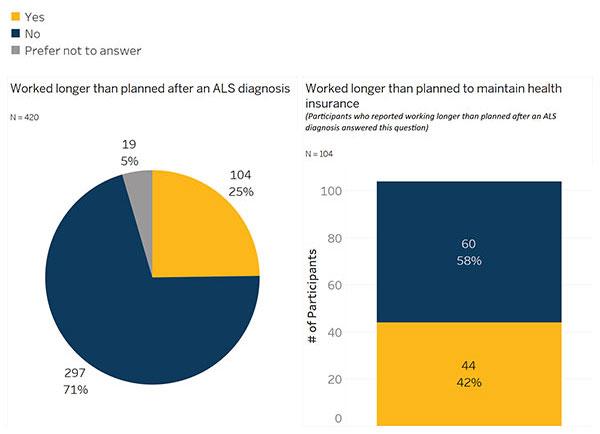
Losing Health Insurance from ALS
One in 10 people with ALS and caregivers (10%) said they lost health insurance after their ALS diagnosis or the diagnosis of the person they care(d) for. Most people in this group (67%) said they lost their health insurance in part because they needed to stop working due to their ALS or to provide ALS care.
Losing Health Insurance after an ALS Diagnosis
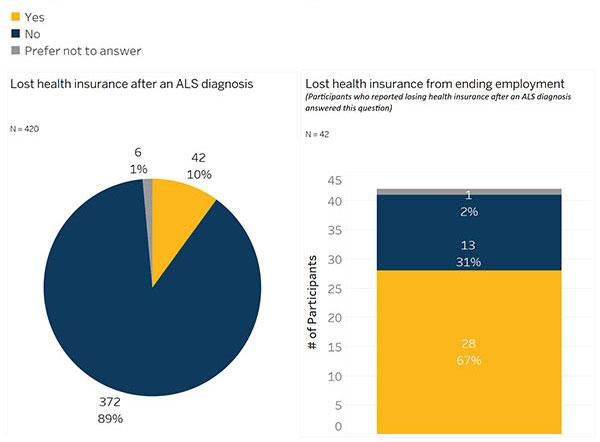
Financial Stress from ALS
Participants with ALS ranked the level of stress they felt when confronting various financial issues related to their ALS medical needs and health insurance. Rankings ranged from 1 ‘not stressful to me’ to 5 ‘very stressful to me’. Several issues were ranked especially high, receiving a 4 or 5 on the 5-point stress scale among nearly 40% of these participants with ALS. These stressors included covering the costs for medical treatments (41%) or medical services (39%), understanding one’s health insurance coverage (41%), and managing medical billing paperwork (38%).
Stress from Covering the Costs of ALS Medical Treatments
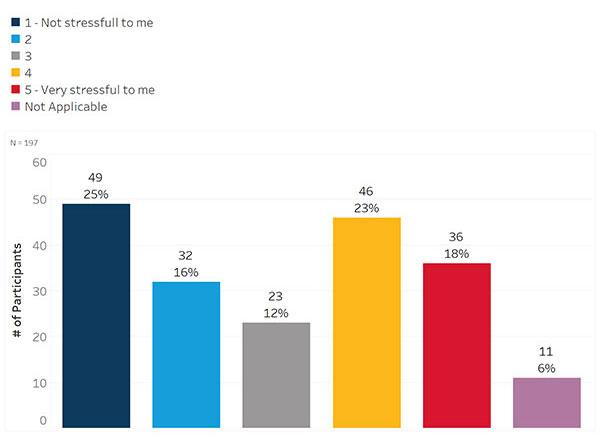
Stress from Covering the Costs of ALS Medical Services
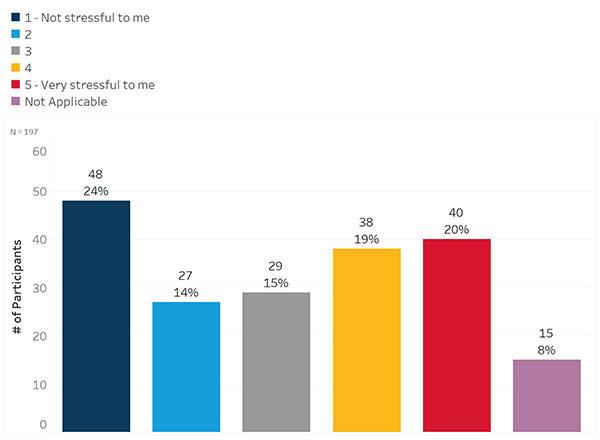
Stress from Understanding Health Insurance Coverage
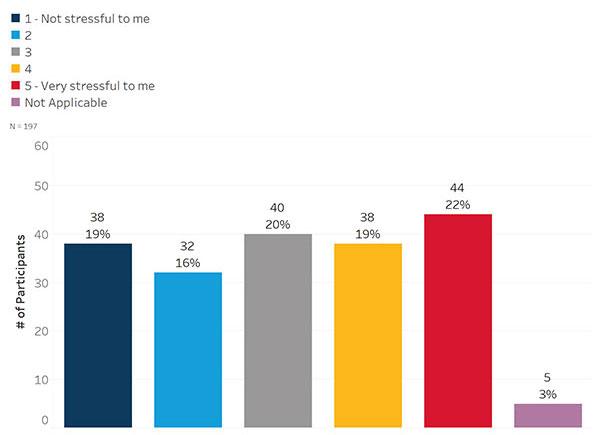
Stress from Managing Medical Bill Paperwork
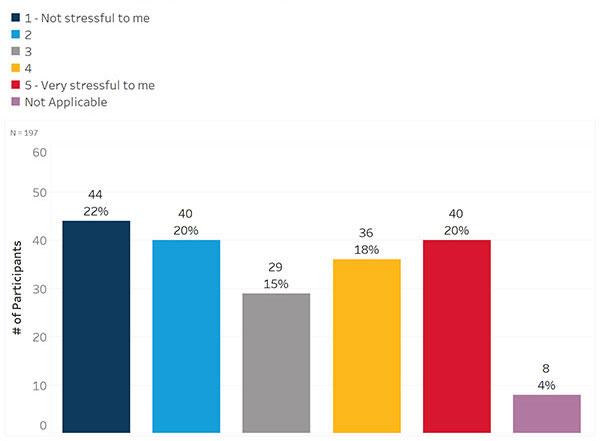
Results Summary
Results from this ALS Focus survey show that people with ALS and caregivers experience insurance needs and financial burdens from ALS. Many of the participants needed to borrow money and work longer than planned to maintain health insurance coverage. People with ALS feel stress as they deal with covering their medical costs, understanding their health insurance policies, and managing bills. On top of these stressors, continuing to work with ALS or while providing caregiving could invite additional stress and burden while dealing with this disease. Each of these needs and burdens are areas where access to resources, education, and financial assistance are warranted.
Your Opinions Matter!
The ALS Association is committed to taking these results and working with our partners in the pharmaceutical and insurance industries to turn them into action and inform crucial changes in our system. All information collected is open and free to researchers, clinicians, and anyone who wants to learn more. In addition, all data is de-identified and protected using a unique code called a global unique identifier (GUID), which is also used to combine data with other rich data sets that broadens the impact of participation.
click here to take ALS focus surveys
Survey Methods
The survey took place online, and participants self-reported their answers. People with ALS who had motor impairment were permitted to have someone else answer questions on their behalf. This study received an exemption determination from the Western Institutional Review Board.
The results presented here are not intended to represent the full population of people with ALS and their caregivers in the United States. Instead, these results reflect the needs, burdens, and experiences of those who participated in the survey.
